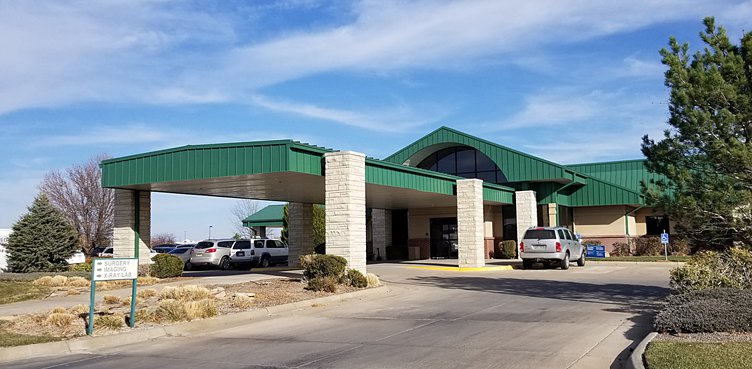Representatives of the hospital and emergency medical services in Barton County met Tuesday. The main topic was the COVID-19 pandemic and how it is taxing already weary and beleaguered health-care providers.
Key takeaways were how the sharp spike in COVID cases in Barton County fills hospital beds also needed by other patients, and a crisis looms should more providers become ill. Also, however, they stressed they are doing their best to provide the care needed to all those who need it.
Their message to the public: Use common sense, practice safety measures (including mask wearing) and limit gatherings.
“The extreme increase in cases is causing issues at our local medical facilities,” said Lindsey Bogner with Ellinwood District Hospital. She was of the meeting attendees.
The impacts are many, she said. Emergency rooms are busier than normal, causing patients to wait longer to get into the ER.
She noted that transfers to other hospitals are hard to coordinate because there’s no room at other facilities, again causing extended patient wait times. “It’s not just COVID patients; other emergencies are still happening.”
Staffing is also a concern across the board for medical facilities and emergency medical services. “With unchecked community spread, this could easily turn into a crisis if more staff start going down” with COVID.
“It’s not a pretty situation, but it’s our reality,” Bogner said. “Health-care workers and facilities are bearing an incredible burden, but the community can help them shoulder that by following the guidelines.”
These include wearing a mask, avoiding mass gatherings, and staying socially distanced. “If our community helps limit the spread, it can make the difference in our already overwhelmed medical system, both locally and statewide,” she said.
At Clara Barton Hospital in Hoisington, it is the same song, second verse.
“We have seen a significant rise in COVID-19 cases in our community and have increased precautions due to this rise,” said Mandy Hoffman, CBH vice-president and chief operating officer. “We are doing everything we can to make sure our COVID-19 patients are receiving good quality care during this time of need.”
“We have seen a sharp increase in the number of individuals requiring testing,” said Jim Blackwell, CBH president and chief executive officer. “Some require a more intensive care setting which is currently very difficult to get into. Many of those larger hospitals are currently at capacity, which is causing the bottleneck.”
Due to the increased testing and positivity rate, Clara Barton has re-implemented its no-visitor policy.
Dr. David Wild, University of Kansas Health System vice president of performance improvement, said the current surge of COVID-19 patients has put pressure on the health system and some patients who can safely delay surgeries for a short time are being asked to do so to handle the increasing numbers.
But, he stressed that regardless of the surge, hospitals are not turning away those who need critical care. UKHS operates the Great Bend Campus, Pawnee Valley Campus in Larned and HaysMed in Hays.
Jill Chadwick, media relations director for the UKHS, said their patient and staff numbers help paint the picture. To put these into context, some definitions are required:
• Acute patients – Those actively infected which need nursing/docs/support staff in full personal protective equipment each time a staff member enters and leaves (donning/doffing - they can’t wear same PPE between rooms), and caring for these patients burns through PPE supplies.
• Recovering – This means the patients are no longer considered contagious, but still needing hospital care. Recovering patients can still be very, very sick – even on a ventilator – but staff can move them to another area where donning/doffing of full PPE is not necessary. Mask wearing and eye protection continues, however this is less of a strain on PPE supplies.
Here are their current numbers:
• Great Bend is licensed for 33 beds with staffing for 29 of those. Currently, they have four positive acute COVID-19 patients and one recovering COVID positive patient.
• Pawnee Valley is licensed for 25 beds with staff for 12. They have two acute COVID patients.
• The Kansas City, Kan., hospital is licensed for 913 beds with all being staffed. They have 84 Active patients with 31 of them in the intensive care unit and 12 on ventilators, and 42 recovering with two of them on ventilators.
In addition, there were 206 employees who tested positive and out Thursday, and 260 on quarantine waiting to hear back on their tests.
Kansas Department of Health and Environment Director Dr. Lee Norman said help is on the way for smaller hospitals struggling to find other facilities to take care of their sickest COVID-19 patients. It’s a service that he likens to an air traffic control center which will facilitate transfers and transportation, and let medical staff, who often spend hours trying to place one patient, get back to patient care.
He believes the best solution for freeing up beds is to move recovering patients back to their home hospitals.




